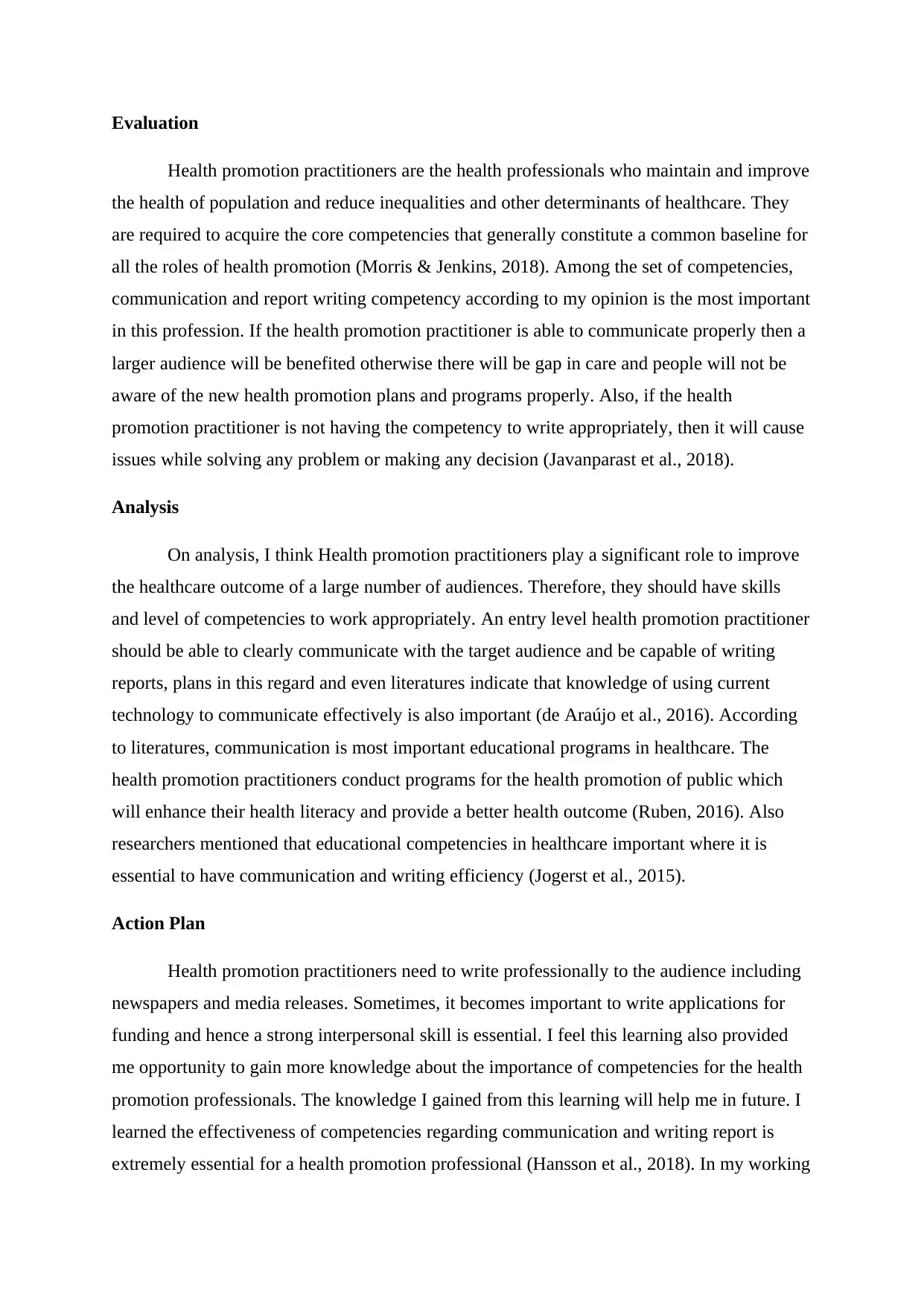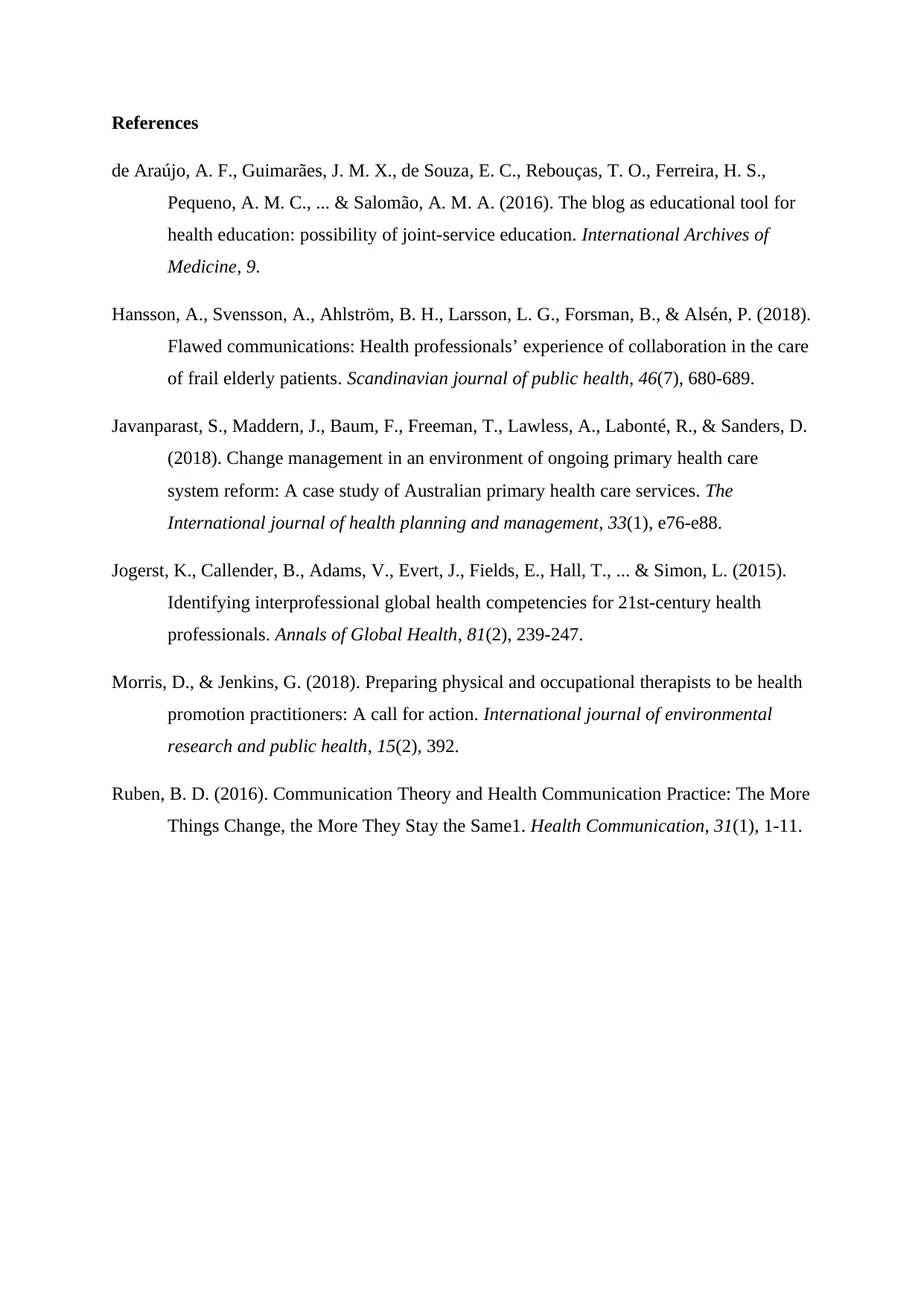Assessment 3: Critical Reflection on Health Promotion Competencies
VerifiedAdded on 2023/03/20
|3
|792
|73
Report
AI Summary
This report provides a critical reflection on the core competencies essential for health promotion practitioners, specifically focusing on communication and report writing skills. The reflection utilizes Gibbs' reflective cycle to analyze the importance of these competencies in improving healthcare outcomes and addressing health inequalities. The report emphasizes the significance of effective communication for disseminating health promotion plans and the ability to write professional reports for funding applications and media releases. The author discusses the importance of these skills and how they will be implemented in future practice. The report also references relevant literature to support the arguments made, highlighting the importance of technology and interpersonal skills. The aim is to enhance health literacy and health outcomes within the community. The report concludes by acknowledging the value of competencies for health promotion professionals.
1 out of 3









![[object Object]](/_next/static/media/star-bottom.7253800d.svg)